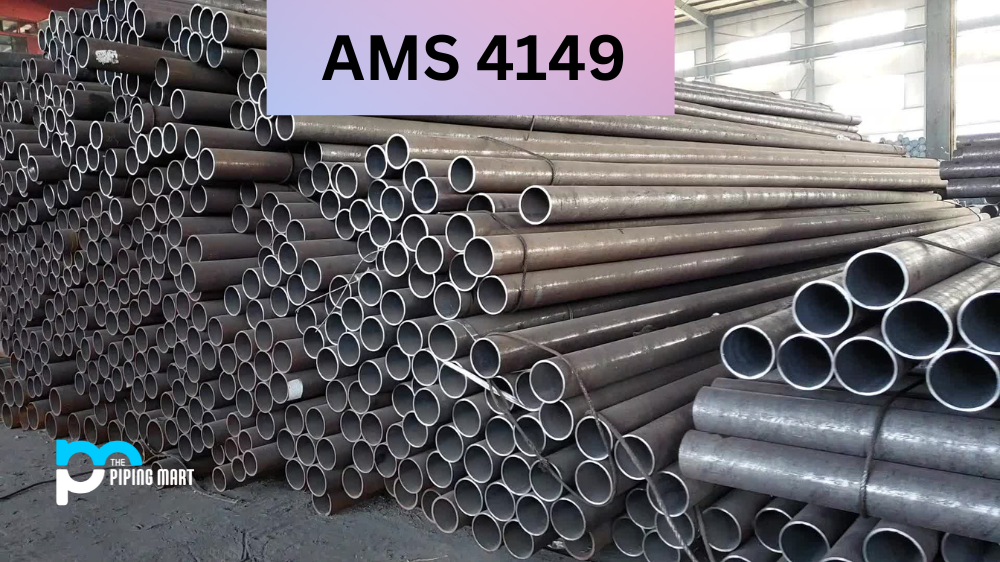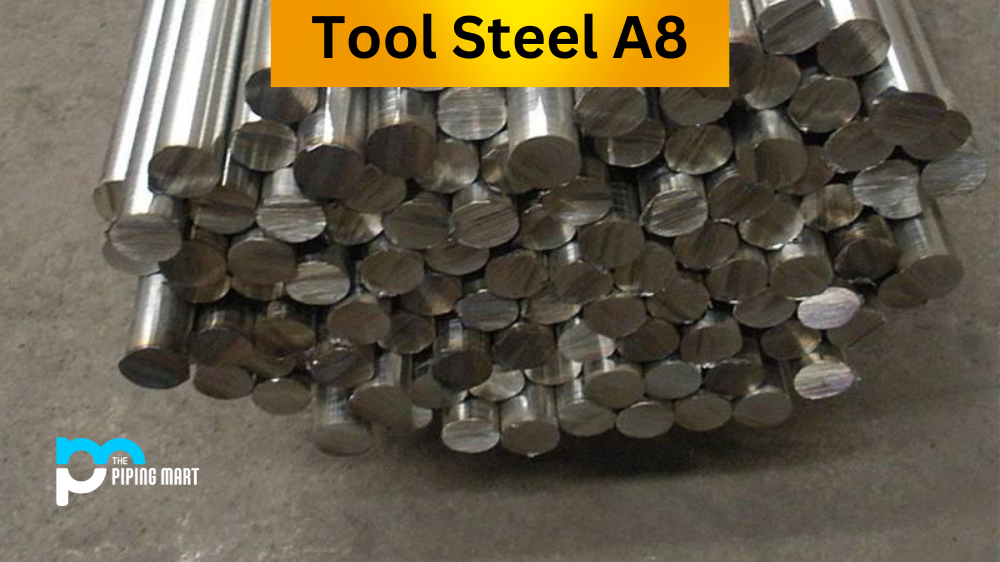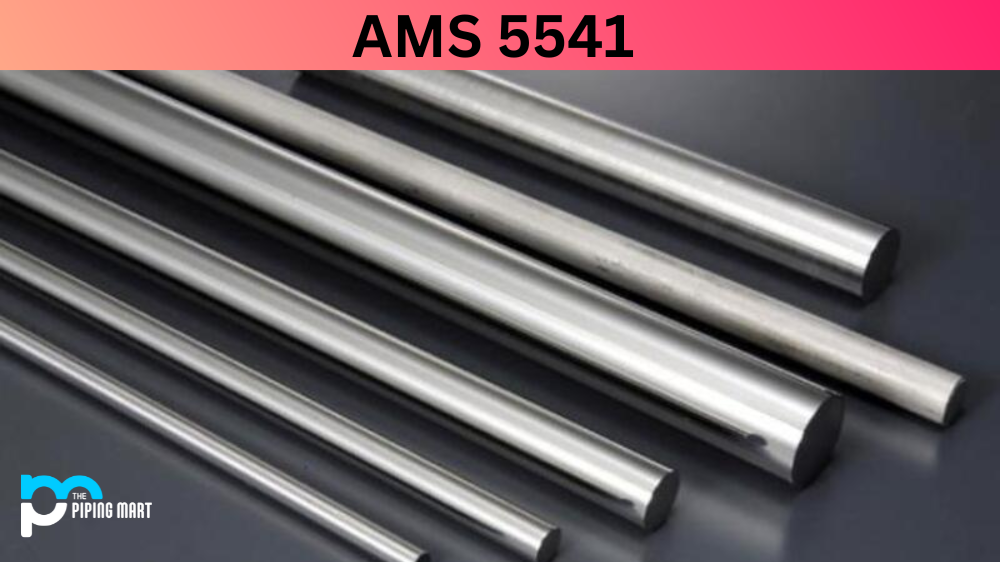Alloy steel grade 1/2CR is a type of steel alloy that is widely used in various industries due to its unique characteristics and properties. It is a low-carbon steel alloy with excellent mechanical, chemical, and physical properties. This alloy has high strength, toughness, and corrosion resistance. This blog post will discuss its composition, chemical properties, mechanical properties, physical properties, uses, heat resistance, heat treatment methods, machining processes, and welding techniques.
Composition
Alloy steel grade 1/2CR contains 0.45-0.55% carbon content along with other elements like silicon (0.15-0.35%), manganese (1.00-1.50%), chromium (0.60-1.20%), nickel (0.30-0.90%), molybdenum (0.20-0.50%) and so on depending on the desired grade of the material being produced from this alloy steel grade 1/2CR.
Chemical Properties
The chemical properties of alloy steel grade 1/2CR are as follows; it has a high hardness level of about 225 HBW at 20°C and good wear resistance along with excellent impact toughness at room temperature, which increases further at lower temperatures down to -150°C making it an ideal choice for use in cold weather conditions. Its high tensile strength makes it suitable for applications requiring higher load bearing capacity, like large cranes or bridges, while its good ductility makes it capable of undergoing cold working without any loss of strength or malformation.
Mechanical Properties
The mechanical properties of alloy steel grade 1/2CR are very impressive as well; it has an ultimate tensile strength that ranges anywhere between 430 MPa to 590 MPa depending upon the exact grade being used, while its yield strength can range between 275 MPa to 420 MPa depending upon the exact grade being used. Additionally, this material also has a great fatigue limit which ranges anywhere between 240 MPa to 340 MPa depending upon the exact grade being used . Furthermore, this material also has an excellent elongation rate ranging from 10% to 12% depending upon the exact grade being used, thus making it an ideal choice for use in applications where a lot of bending or stretching needs to be done.
Physical Properties
The physical properties of alloy steel grade 1/2CR are quite remarkable; it has a density that ranges from 7500 kg / m3 to 8000 kg / m3 depending upon the exact grade being used, while its modulus of elasticity can range between 200 GPa to 210 GPa depending upon the exact grade being used. This material also has an impressive thermal conductivity ranging between 40 W / mK to 45 W / mK at room temperature, making it an ideal choice for use in applications where heat transfer is critical such as boilers or steam turbines. Furthermore, this material also has excellent magnetic permeability, which helps make it useful in applications where electromagnetic fields need to be measured accurately, such as motors or generators.
Uses
Alloy Steel Grade 1/2CR is a versatile and popular speciality steel. It has excellent ductility, toughness, and strength, making it suitable for a range of uses. It is often used in constructing and maintaining aircrafts and jet engines, primarily for its lasting quality despite extreme heat or cold temperatures. It can also be used to create tools that are resistant to wear and corrosion, making it common among metalworking industries like manufacturing, power generation, automotive transportation and even oil exploration. Best of all, its low-cost yet high-quality attributes makes it an affordable material to use in any engineering project.
Corrosion Resistance
Alloy Steel Grade 1/2CR is renowned for its exceptional corrosion resistance, making it ideal for various applications in industries from automotive to marine. It’s also known for superior strength and fatigue properties, making it an excellent choice for components given the rigorous conditions they will endure. Its resistance to various corrosive environments makes it reliable in coastal areas and other highly corrosive atmospheres. Additionally, it does not require extra protective coatings, which can add significant costs to a project. This cost savings and its stellar performance make Alloy Steel Grade 1/2CR a great option when selecting materials for a project that must withstand challenging conditions over time.
Heat Resistance
Alloy Steel Grade 1/2CR is a special type of Steel that offers superior heat resistance. It is designed to retain its strength even under extremely high temperatures, making it an ideal material for manufacturing products where extreme temperatures are a factor. For example, exhaust systems, fuel pumps, and oil storage tanks often require specialty metals to handle their heat requirements. It is perfect for those applications thanks to Alloy Steel Grade 1/2CR’s ability to withstand extremes of up to 1300 degrees Celsius. It works well in any environment where accurate workmanship and reliable long-term service under high stress loads is needed.
Heat Treatment
Alloy Steel Grade 1/2CR is a versatile heat-treated steel typically used in an array of applications. Commonly appreciated for its ductility, wear resistance, and strength, it offers outstanding performance even under extremely harsh environments like those in high-temperature settings. The grade’s heat treatment process involves the controlled cooling of air-hardened steels, allowing it to achieve optimum mechanical properties through a careful balance of strength and toughness. Its high level of stability means low maintenance costs and long life cycles for this type of Steel. Thanks to its versatility, Alloy Steel Grade 1/2CR is the go-to choice for many industries when superior quality is needed.
Machining
Alloy Steel Grade 1/2CR machining is a highly specialized process that requires accurate, precise control for the highest quality results. This type of machining can be done using manual or CNC methods and usually involves drilling, turning and milling of metal components for various aviation, automotive and engineering projects. Typically the material being worked on is hardened Steel which enhances its strength but increases tool wear due to the heightened surface resistance. When machining this grade of alloy steel, it is important to observe proper speeds and cut depths to not cause any damage or decelerate tool life. Grade 1/2CR machining requires skill and experience in order to achieve the greatest accuracy with minimal metal debris as a result, making it an ideal choice for precision metal parts with high-performance applications.
Welding
Alloy steel grade 1/2CR welding is a versatile and economical process used in many industrial applications. This type of welding allows for the production of strong, durable welds across a variety of surfaces and results in minimal waste. With its high corrosion resistance, low thermal conductivity, and excellent formability, alloy steel grade 1/2CR offers superior weld strength and quality when compared to other methods. Experienced welders can manipulate the temperature and current to create custom designs with superior accuracy and precision. Grade 1/2CR welding can be used in various settings, from outdoor construction projects to complex commercial manufacturing processes. No matter the scale or scope of your project, alloy steel grade 1/2CR welding has proven to be an efficient and reliable method that brings impressive results every time.
Conclusion
All in all, Alloy Steel Grade 1/2CR is a great choice for many different industries due its unique combination of chemical and physical properties; these include its great corrosion resistance and heat resistance as well as its excellent mechanical strengths such as its high tensile strength and fatigue limit alongside its good ductility and magnetic permeability which make it ideal for use in many different types of applications requiring accurate measurements like motors or generators alongside more traditional uses such as construction materials like bridges or cranes due to their superior load bearing capacity compared with other types of metals available today . Additionally , thanks to their low cost compared with other types of metals, they have become quite popular among many different industries looking for reliable yet economical solutions . Finally , thanks to their easy machinability and weldability they have become increasingly popular among those looking for quick yet reliable manufacturing solutions when producing products quickly yet accurately is paramount regardless if they are producing small parts or larger components alike!
Meet Heer, a dynamic and driven writer learning tricks of her trade in the metal industry. With a background in Digital Marketing, Heer brings a unique perspective to her writing, sharing valuable insights. Apart from blogging she like reading and hiking.




